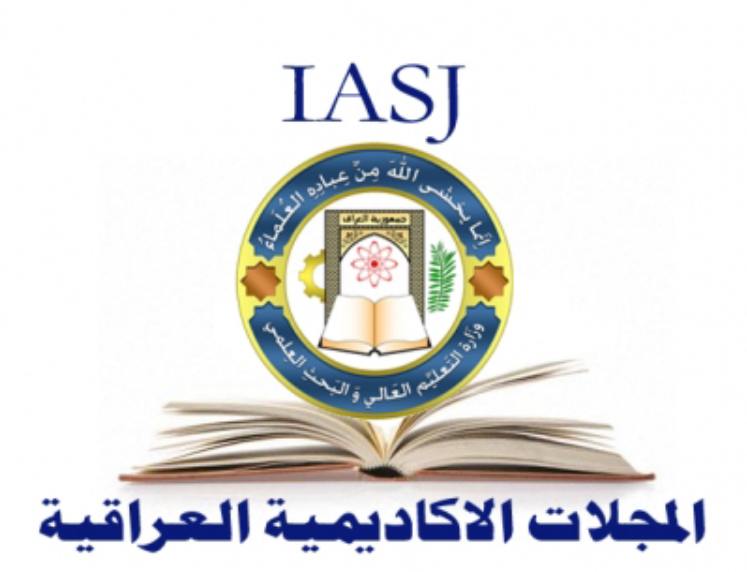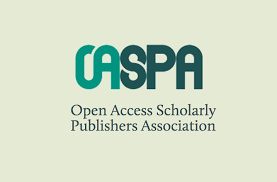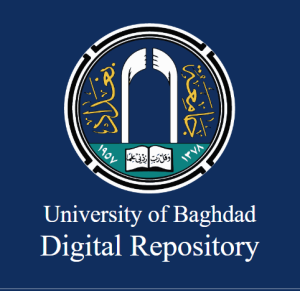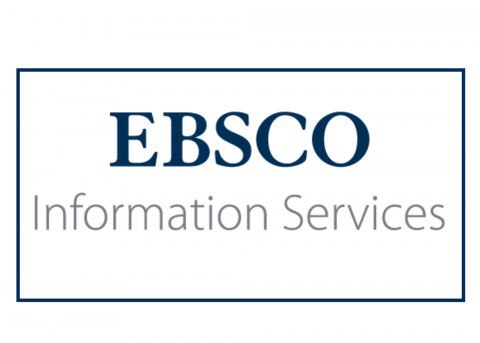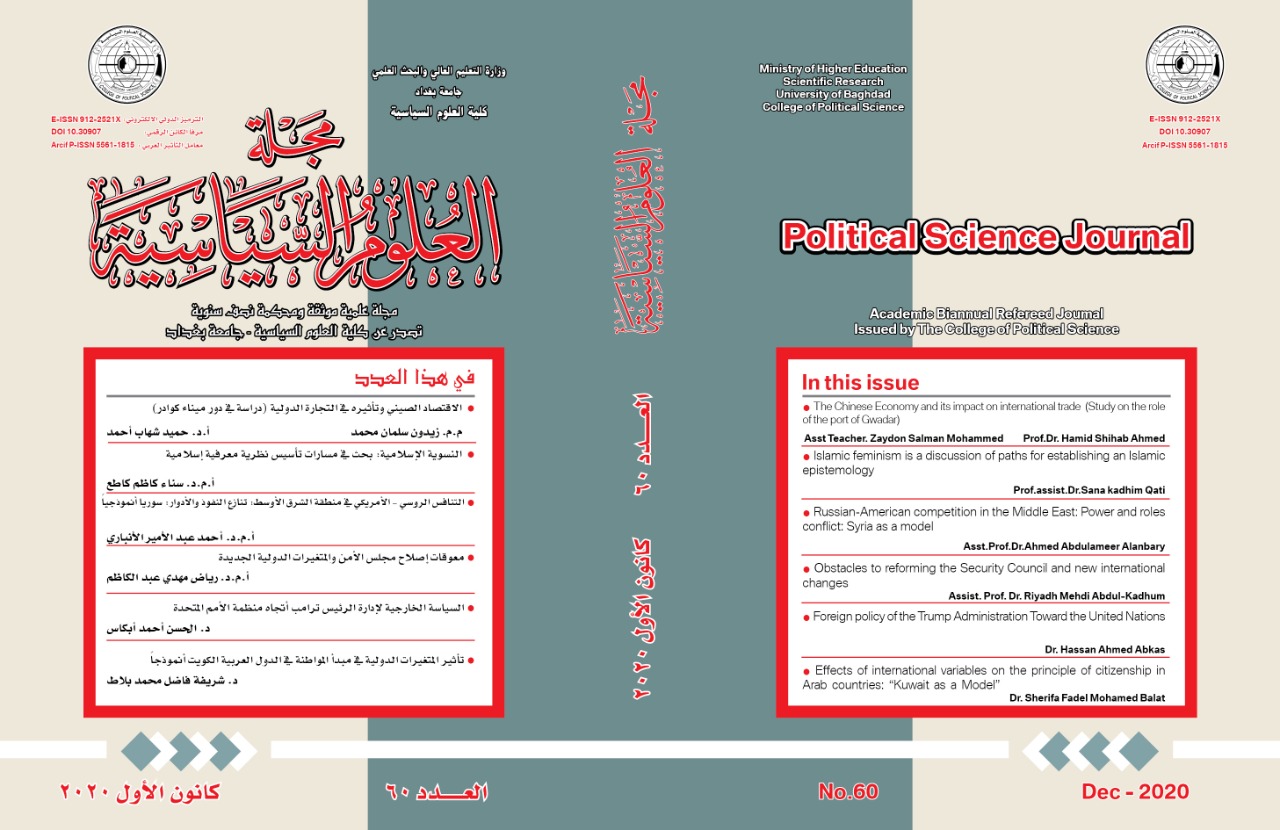جدل الديمقراطية في الفكرالسياسي الإسلامي المعاصر
DOI:
https://doi.org/10.30907/jj.v0i59.470الكلمات المفتاحية:
الديمقراطية، الخطاب المتشدد،الخطاب التوفيقي، الخطاب الأستغرابي.الملخص
جاءت هذه الدراسة التي تحمل عنوان (جدل الديمقراطية في الفكر السياسي الأسلامي المعاصر) للأحاطة بالجدل الواسع الذي اثارته مسالة الديمقراطية بين اوساط المفكرين والباحثيين الاسلاميين المعاصرين وذلك من حيث انها نظام تحمل في طياتها ايديولوجية معينة بحيث لا يمكن ان تجتمع مع الأسلام اطلاقاً؟ ام من حيث انها مجموعة اليات لتنظيم العمل السياسي لا اكثر؟ ام انها ليست عقيدة ولا تتضمن موقفاً عقائدياً او فكرياً محدداً بذاته؟
ان دخول الديمقراطية في الأدبيات السياسية الأسلامية بعدما غزيت البلاد الاسلامية من قبل الأوربيين غزواً ثقافياً وعسكرياً ، سبب ردود فعل كثيرة في اطار الخطاب السياسي الأسلامي المعاصر تجاهها تأرجح بين رفضها وبين القبول بها على نحوٍ مشروط من جانب وعلى نحوٍ مطلق من جانب اخر .
وعلى ذلك فقد تم تقسيم هذه الدراسة الى مقدمة وثلاثة مباحث وخاتمة , تناولنا في المبحث الأول : الديمقراطية في الخطاب الاسلامي المتشدد ، والمبحث الثاني عالجنا فيه مسألة الديمقراطية في الخطاب الاسلامي التوفيقي (المعتدل)، اما المبحث الثالث فقد بحث في مسألة الديمقراطية في الخطاب الاسلامي الاستغرابي.
المراجع
2- صلاح عبدالرزاق، الاسلاميون والديمقراطية ، ط1 ( بغداد ، مركز دراسات العراق ، 2007 ) ، ص 109 .
3- سيد قطب ، العدالة الأجتماعية في الاسلام ، ( القاهرة ، دار الشروق ، 1995) ، ص75-76
4- صلاح عبدالرزاق ، مصدر سبق ذكره ، ص 110
5- حسين سعد ، الاصولية الأسلامية بين النص الثابت والواقع المتغير، ط2( بيروت ، مركز دراسات الوحدة العربية ، 2000) ، ص 252 .
6- عبدالاله بلقزيز ، الدولة في الفكر الاسلامي المعاصر ، ط2 ( بيروت ، مركز دراسات الوحدة العربية ، 2004 ) ، ص206-207.
7- سيد قطب ، المستقبل لهذا الدين ، ( القاهرة ، دار الشروق ، 1983 ) ، ص24.
8- مختار الأسدي ، الديمقراطية والدين وولاية الفقيه ، ط1 ( بيروت ، دار الانتشار العربي ، 2009 ) ، ص 30- 31
9- علي الصالح مولى ، الأصولية الأسلامية : قراءة في مقدمات النشأة وتطورها ، مجلة المستقبل العربي ، العدد (358) ، (بيروت ، مركز دراسات الوحدة العربية ، 2007) ، ص124.
10- المصدر نفسه ، ص125.
11- راشد الغنوشي ، هل مشروع الحركة الاسلامية في تراجع ، ( في كتاب ) : الحركة الاسلامية رؤية نقدية ، ط1 ( بيروت ، الأنتشار العربي ، 2001) ، ص 36-37.
12- زكي احمد، الديمقراطية في الخطاب الاسلامي الحديث والمعاصر ، ( في كتاب ) : الحركات الاسلامية والديمقراطية ، ط2 ( بيروت ، مركز دراسات الوحدة العربية ، 2001 )، ص 70.
13- المصدر نفسه ، ص 71.
14- المصدر نفسه ، ص 71.
15- عبدالقديم زلوم ، الديمقراطية نظام كفر يحرم اخذها او تطبيقها او الدعوة اليها ، ( د.م.،د.ن، 1999), ص28.
16- نقلاً عن : همام سرحان ، الأسلاميون والديمقراطية .. المخاوف والضمانات ، على الموقع الالكتروني : . Swissinfo.ch
17- احمد الموصللي ، جدليات الشورى والديمقراطية .، ط1 ( بيروت ، مركز دراسات الوحدة العربية ، 2007 ) ، ص 78.
18- عبدالاله بلقزيز ، مصدر سبق ذكره ,ص188 .
19- المصدر نفسه ، ص 188-189.
20- المصدر نفسه ، ص 189 .
21- صلاح عبدالرزاق ، مصدر سبق ذكره ، ص126.
22- محمد بحر العلوم ، افاق حضارية للنظرية السياسية في الاسلام ، ط2 ( بيروت ، دار الزهراء ، 2003 ) ، ص168.
23- مختار الأسدي ، مصدر سبق ذكره , ص95 .
24- محمود حسن ضاحي ، الأسلاميون وموقفهم من الديمقراطية، على الموقع الالكتروني : maqalati.com
* القران الكريم ، سورة ال عمران ، الاية : 159.للمزيد عن تفسير المتشددين لاية الشورى ، انظر : مختار الأسدي ، مصدر سبق ذكره ، ص 85-87 .
25- فهمي هويدي ، الاسلام والديمقراطية ( في كتاب ) : الحركة الاسلامية والديمقراطية ، مصدر سبق ذكره ،ص 18 .
26- المصدر نفسه ، ص 18.
27- محيي الدين نزيه ، قراءة نقدية في الفكر الاسلامي ،( بيروت ، مؤسسة الرسالة ، 2004) ،ص 108.
28- صلاح عبدالرزاق ، مصدر سبق ذكره ، ص 131
29- المصدر نفسه ، ص 122.
30- هاشم مرتضى الميلاني ، الديمقراطية وجهات نظر اسلامية , ط1 ( بغداد ، مركز اور للدراسات ، 2008 ) ، ص108.
31- صلاح عبدالرزاق ، مصدر سبق ذكره ، , ص122.
32- طه عبدالرحمن ، سؤال الاخلاق – مساهمة في النقد الاخلاقي للحداثة الغربية ، ( الدار البيضاء ، المركز الثقافي العربي ، 2006 ) ، ص171.
33- مختار الاسدي , مصدر سبق ذكره , ص40-41.
34- المصدر نفسه ، ص41-42.
35- راشد الغنوشي ، الحريات العامة في الدولة الاسلامية ،( بيروت , مركز دراسات الوحدة العربية ، 1993 ) ،ص88.
36- نعيم بلال ، مستقبل الديمقراطية في الوطن العربي ( بيروت، دار الولاء ، 2004) ، ص55.
37- محمد عماره ، هل الاسلام هو الحل ؟ ط2 ( القاهرة ، دار اشروق ، 1418ه) ,ص82.
38- مختار الاسدي ، الدين والسياسة ( اشكالية الحق والمصلحة ) , ط1 ( بيروت ، الانتشار العربي ، 2010)، ص 173.
39- احمد الموصللي ، قراءة نظرية تأسيسية في الخطاب الاسلامي المعاصر ،ط1 ، 1993 ، ص154.
40- المصدر نفسه ، ص 154.
41- المصدر نفسه ، ص 154.
42- منذر خدام ، اشكالية تأصيل الديمقراطية في الفكر الاسلامي ، على الموقع الالكتروني : m.ahewar.org
43- همام سرحان ، مصدر سبق ذكره .
44- المصدر نفسه .
45- المصدر نفسه .
46- عبدالاله بلقزيز ، مصد سبق ذكره ، ص 185
47- عبدالسلام ياسين ، الشورى والديمقراطية ، ( الدار البيضاء ، مطبوعات الأفق ، 1996 ) ، ص 46.
48- عبدالاله بلقزيز ، مصدر سبق ذكره ، ص 187.
** المراد بالاستغراب هنا ليس مجرد قراءة الغرب من قبل الشرق بقدر ما هو ايضاً الأرتماء في احضانه والأيمان المطلق بمتبنياته كافة . للمزيد ينُظر : محمد هاشم البطاط ، الخطاب الاسلامي : امكانية النقد وتعارضات الاحياء والأماتة ، مجلة المنهج، العدد (16 ) ، ( بيروت ، مركز الدراسات التخصصية في فكر السيد الشهيد محمد الصدر ، 2011 ) ، ص 31.
49- زكي نجيب محمود ، تجديد الفكر العربي ، ( القاهرة ، دار الشروق ، 1982 ) ، ص 82.
50- احسان العارضي ، جدل الحداثة وما بعد الحداثة في الفكر الاسلامي المعاصر ، ط1 ( د.م . مركز الفكر الاسلامي المعاصر ، 2013 ) ، ص 157 .
51- المصدر نفسه ، ص 157 .
52- عبدالله العروي ، مفهوم العقل : مقالة في المفارقات ، ( الدار البيضاء ، المركز الثقافي العربي ,1996 ) ص17.
53- محمد عابد الجابري، الديمقراطية وحقوق الانسان ، ط2 ( بيروت ، مركز دراسات الوحدة العربية ، 1997 ) ، ص131.
54- المصدر نفسه ، ص52 .
55- محمد اركون ، الفكر الاصولي واستحالة التأصيل ،ترجمة : هاشم صالح ، ( بيروت ، دار الساقي ، 1999) ، ص 53.
56- المصدر نفسه ، ص53.
57- المصدر نفسه ، ص 53.
58- زكي احمد ، مصدر سبق ذكره ،ص 76.
59- المصدر نفسه ، ص 73.
60- المصدر نفسه ، ص 73.
61- عبدالله العروي ، مصدر سبق ذكره ، ص 363.
List of Sources and reference:
i. Amal Hindi Khazali, Contemporary Islamic Thought and Intellectual Theses of the Current International Situation, Unpublished PhD thesis (University of Baghdad, College of Political Science, 2001), pp. 22-23.
ii. Salah Abdul-Razzaq, Islamists and Democracy, 1st edition (Baghdad, Iraq Studies Center, 2007), p. 109.
iii. Syed Qutb, Social Justice in Islam, (Cairo, Dar Al-Shorouk, 1995), pp. 75-76
iv. Salah Abdul-Razzaq, previously mentioned source, p. 110
v. Hussein Saad, Islamic Fundamentalism between the Static Text and the Changing Reality, 2nd edition (Beirut, Center for Arab Unity Studies, 2000), p. 252.
vi. Abdel-Ilah Belqiziz, The State in Contemporary Islamic Thought, 2nd edition (Beirut, Center for Arab Unity Studies, 2004), pp. 206-207.
vii. Sayyid Qutb, The Future of this Religion, (Cairo, Dar Al-Shorouk, 1983), p. 24.
viii. Mukhtar Al-Asadi, Democracy, Religion, and the Jurist State, 1st edition (Beirut, Arab Publishing House, 2009), pp. 30-31
ix. Ali Al-Saleh Molly, Islamic Fundamentalism: A Reading of the Introductions to Development and Its Development, Arab Future Magazine, No. (358), (Beirut, Center for Arab Unity Studies, 2007), p. 124.
x. The same source, p. 125.
xi. Rashid Ghannouchi, Is the Project of the Islamic Movement in Retreat, (in a book): The Islamic Movement A Critical Vision, i 1 (Beirut, Arab Spread, 2001), pp. 36-37.
xii. Zaki Ahmed, Democracy in Modern and Contemporary Islamic Discourse, (in a book): Islamic Movements and Democracy, 2nd edition (Beirut, Center for Arab Unity Studies, 2001), p. 70.
xiii. The same source, p. 71.
xiv. The same source, p. 71.
xv. Abd al-Qadim Zalloum, Democracy is a blasphemy regime that prohibits its taking, applying, or advocating for it (D., D.N., 1999), p. 28.
xvi. Quoting: Hammam Sarhan, Islamists and Democracy ... Fears and Guarantees, on the website:. Swissinfo.ch
xvii. Ahmed Al-Mosalli, The Shura and Democracy Dialogues., 1st edition (Beirut, Center for Arab Unity Studies, 2007), p. 78.
xviii. Abdelelah Belqiziz, previously mentioned source, p. 188.
xix. The same source, pp. 188-189.
xx. The same source, p. 189.
xxi. Salah Abdul-Razzaq, previously mentioned source, p. 126.
xxii. Muhammad Bahr al-Ulum, Civilizational Perspectives of Political Theory in Islam, 2nd edition (Beirut, Dar Al-Zahra, 2003), p. 168.
xxiii. Mukhtar Al-Asadi, previously mentioned source, p. 95.
xxiv. Mahmoud Hassan Dahi, Islamists and their position on democracy, on the website: maqalati.com * The Noble Qur’an, Surat Al-Imran, verse: 159. For more on the militants ’interpretation of any Shura, see: Mukhtar Al-Asadi, previously mentioned source, pp. 85-87 .
xxv. Fahmi Howeidi, Islam and Democracy (in a book): The Islamic Movement and Democracy, a previously mentioned source, p. 18.
xxvi. The same source, p. 18.
xxvii. Mohieldin Nazih, Critical Reading in Islamic Thought, (Beirut, Al-Risala Foundation, 2004), p. 108.
xxviii. Salah Abdel-Razzaq, previously mentioned source, p. 131
xxix. The same source, p. 122.
xxx. Hashem Murtada Al-Milani, Democracy and Islamic Perspectives, 1st edition (Baghdad, Ur Center for Studies, 2008), p. 108.
xxxi. Salah Abdul-Razzaq, previously mentioned source, p. 122.
xxxii. Taha Abdul Rahman, The Question of Ethics - A Contribution to the Moral Criticism of Western Modernity, (Casablanca, Arab Cultural Center, 2006), p. 171.
xxxiii. Mukhtar Al-Asadi, previously mentioned source, pp. 40-41.
xxxiv. The same source, pp. 41-42.
xxxv. Rashid Ghannouchi, Public Liberties in the Islamic State, (Beirut, Center for Arab Unity Studies, 1993), p. 88.
xxxvi. Naim Bilal, The Future of Democracy in the Arab World (Beirut, Dar Al-Walaa, 2004), p. 55.
xxxvii. Muhammad Amara, Is Islam The Solution? 2nd edition (Cairo, Dar Ashrouk, 1418 AH), p. 82.
xxxviii. Mukhtar Al-Asadi, Religion and Politics (The Problem of Truth and Interest), 1 st edition (Beirut, Arab Proliferation, 2010), p. 173.
xxxix. Ahmad Al-Mosalli, A foundational theory reading in contemporary Islamic discourse, i 1, 1993, p. 154.
xl. The same source, p. 154.
xli. The same source, p. 154.
xlii. Munther Khaddam, The problem of establishing democracy in Islamic thought, on the website: m.ahewar.org
xliii. Hammam Sarhan, a source previously mentioned.
xliv. The same source.
xlv. The same source.
xlvi. Abdelelah Belqiziz, a previously mentioned source, p. 185
xlvii. Abdel Salam Yassin, Shura and Democracy, (Casablanca, Horizon Publications, 1996), p. 46.
xlviii. Abdelelah Belqiziz, previously mentioned source, p. 187.
xlix. ** What is meant by amazement here is not just reading the West by the East as much as it is also the stuttering in its embrace and the absolute belief in all its premises. For more see: Muhammad Hashem Al-Batat, Islamic Discourse: The Possibility of Criticism and Conflicts of Neighborhoods and the Nation, Al-Manhaj Magazine, Issue (16), (Beirut, Center for Specialized Studies in the Thought of the Martyr Muhammad al-Sadr, 2011), p. 31.
l. Zaki Najib Mahmoud, Renewing Arab Thought (Cairo, Dar Al-Shorouk, 1982), p. 82.
li. 50 - Ihssan Al-Ardi, The Controversy of Modernity and Postmodernity in Contemporary Islamic Thought, 1st edition (D.M. Center for Contemporary Islamic Thought, 2013), p. 157.
lii. 51 - The same source, p. 157.
liii. 52 - Abdullah Al-Arwi, The Concept of Reason: An Essay on Paradoxes (Casablanca, The Arab Cultural Center, 1996), p. 17.
liv. 53 - Muhammad Abed Al-Jabri, Democracy and Human Rights, 2nd edition (Beirut, Center for Arab Unity Studies, 1997), p. 131.
lv. 54 - The same source, p. 52.
lvi. 55 - Muhammad Arkoun, “Fundamentalist Thought and Impossibility of Rooting,” translation: Hashem Saleh, (Beirut, Dar Al-Saqi, 1999), p. 53.
lvii. 56 - The same source, p. 53.
lviii. 57 - The same source, p. 53.
lix. 58 - Zaki Ahmad, previously mentioned source, p. 76.
lx. 59 - The same source, p. 73.
lxi. 60 - The same source, p. 73.
lxii. 61 - Abdullah Al-Arwi, previously mentioned source, p. 363.





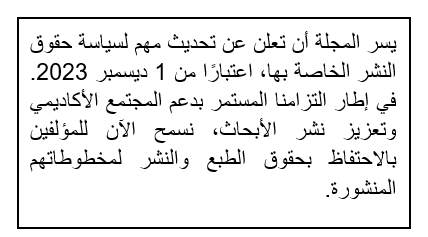
 ©️ 2023 The Author(s). Published by College of Political Science, University of Baghdad. This is an Open Access article distributed under the terms of the
©️ 2023 The Author(s). Published by College of Political Science, University of Baghdad. This is an Open Access article distributed under the terms of the 
